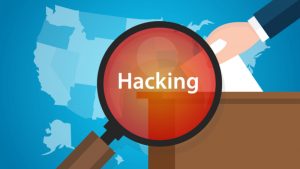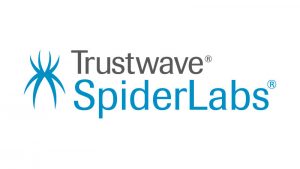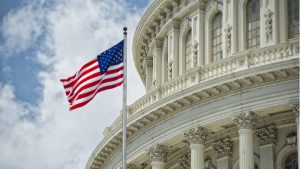Last week, the National Institute of Standards and Technology (NIST) revealed the initial public draft of its Special Publication 800-160 Volume 2, Systems Security Engineering: Cyber Resiliency Considerations for the Engineering of Trustworthy Secure Systems.
The Department of Homeland Security’s (DHS) rare public alert last week about a large-scale Russian cyber campaign targeting U.S. infrastructure raised a piercing alarm about vulnerabilities in the nation’s power grid, and underscored what officials have meant when talking about the need for a whole-of-government and whole-of-nation approach to cyber defense.
In times of emergency, state governors have regularly called in the National Guard, for reasons such as assisting the recovery after natural disasters like Hurricane Katrina in 2005 or to suppress protests in Ferguson, Mo., in 2014. If voting systems are under siege, should they do the same?
Reports surfaced five years ago that the Kremlin had started buying typewriters to avoid computer leaks. Suffice to say, it’s a complicated cyber world out there today–from nation states to cyber criminals to organized crime to 400lbs guys in their bedrooms in New Jersey. And, in this dynamic environment, the only thing we know for sure is that the way we’ve done things before won’t protect us anymore. Trustwave Government Solutions is debuting its new Threat Hunting service for forward-leaning government agencies that are tired of having their cyber clocks cleaned.
Every year the National Association of State CIOs (NASCIO) releases its State CIO Top 10 Priorities. While the recently released 2018 list has a few predictable entries, it comes with a few surprises, too.
As the new year gets underway, MeriTalk is looking back to some of the top innovators in Federal, state, and local cybersecurity. At the Symantec Government Symposium, MeriTalk’s founder Steve O’Keeffe sat down with the 2017 Cyber Award winners to discuss their success, and what they learned as they worked to stay ahead of cyber threats.
A bipartisan bill introduced in the Senate just before the Christmas break aimed at protecting American elections from foreign cyberattacks has been getting generally positive reviews from security professionals.
Password manager company, Dashlane, has added a twist with its list of the “Worst Password Offenders” of 2017, naming high-profile people and organizations that fell into the bad-password trap. President Trump was deemed the worst offender, primarily because of simple passwords reportedly used by cabinet members and policy directors. Outside parties were also the culprits for the Department of Defense, specifically for its contractor, Booz Allen, as well as the Republican Party (stemming from a careless data analytics firm). Paul Manafort, for using “Bond007” as a password, and Sean Spicer, for apparently tweeting his passwords, also came in for scorn.
The flood of surveys and reports detailing the shortage of qualified IT and cybersecurity professionals is unrelenting. Estimates put the shortfall at anywhere between 1.8 million to 3.5 million in the next five years.
With the midterm elections of 2018 fewer than 12 months away, Congress is showing heightened concern over the potential for disastrous cyber attacks on the nation’s electronic voting systems.













